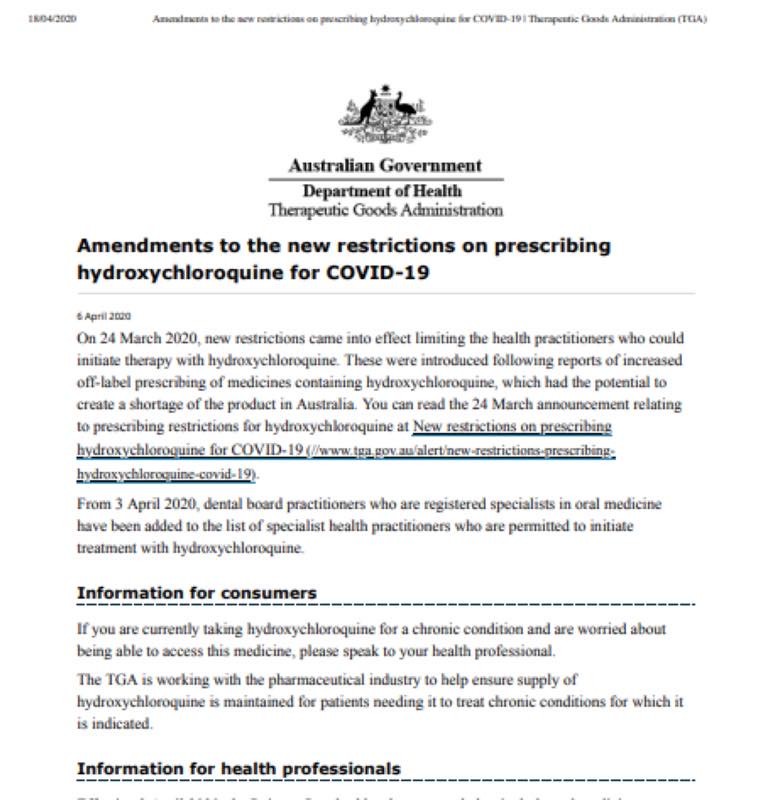On 24 March 2020, new restrictions came into effect limiting the health practitioners who could initiate therapy with hydroxychloroquine. These were introduced following reports of increased off-label prescribing of medicines containing hydroxychloroquine, which had the potential to create a shortage of the product in Australia. You can read the 24 March announcement relating to prescribing restrictions for hydroxychloroquine at New restrictions on prescribing hydroxychloroquine for COVID-19.
From 3 April 2020, dental board practitioners who are registered specialists in oral medicine have been added to the list of specialist health practitioners who are permitted to initiate treatment with hydroxychloroquine.
Information for consumers
If you are currently taking hydroxychloroquine for a chronic condition and are worried about being able to access this medicine, please speak to your health professional.
The TGA is working with the pharmaceutical industry to help ensure supply of hydroxychloroquine is maintained for patients needing it to treat chronic conditions for which it is indicated.
Information for health professionals
Effective 3 April 2020, the Poisons Standard has been amended to include oral medicine specialists registered with the Australian Dental Board to the list of specialist health practitioners authorised to supply and initiate treatment with hydroxychloroquine. This in addition to the categories of specialist medical practitioners currently permitted to authorise the supply of hydroxychloroquine.
Drugs and Poisons control legislation in the states and territories will be updated as required to reflect this change to the Poisons Standard.
Authorisation of initial treatment with hydroxychloroquine by listed specialists
Under the Appendix D Item 8 entry for hydroxychloroquine, medical practitioners that are not one of the listed specialists cannot initiate treatment with hydroxychloroquine.
Authorisation of initial treatment by one of the listed specialists could include documented instruction from a listed specialist to a general practitioner (GP) which would enable the GP to write the initial and continuing prescriptions.
Documented instruction could include verbal instruction that are recorded in the patient’s medical record, or written correspondence from the relevant specialist.
Repeat scripts for patients already on treatment with hydroxychloroquine are not restricted to the listed specialists.
Please contact your relevant state or territory for information on their implementation of the Poisons Standard. Contact details for the Drugs and Poisons Units for each state and territory are available on the TGA website at Contacts for State/Territory medicines & poisons regulation units.
Official link source here: https://www.tga.gov.au/alert/amendments-new-restrictions-prescribing-hydroxychloroquine-covid-19

